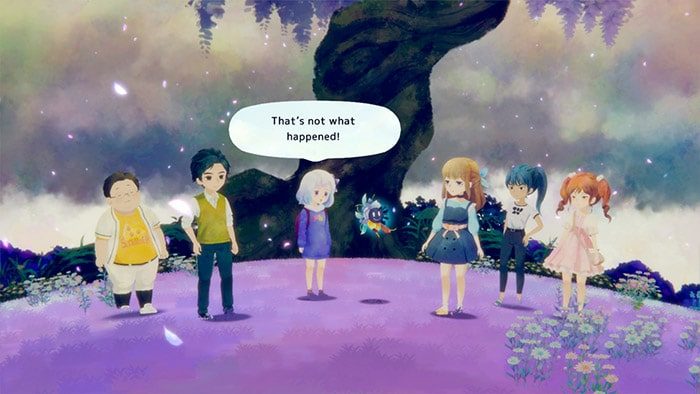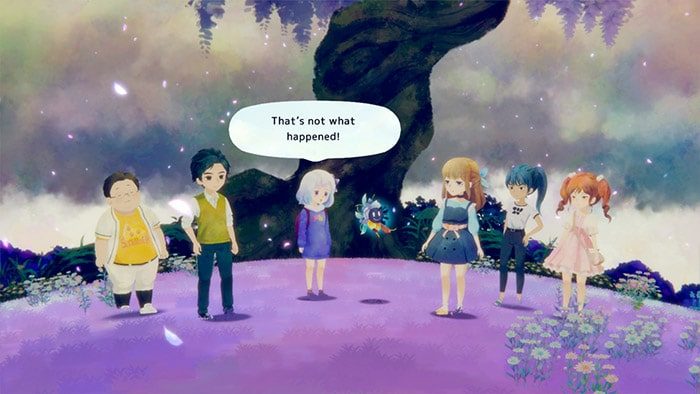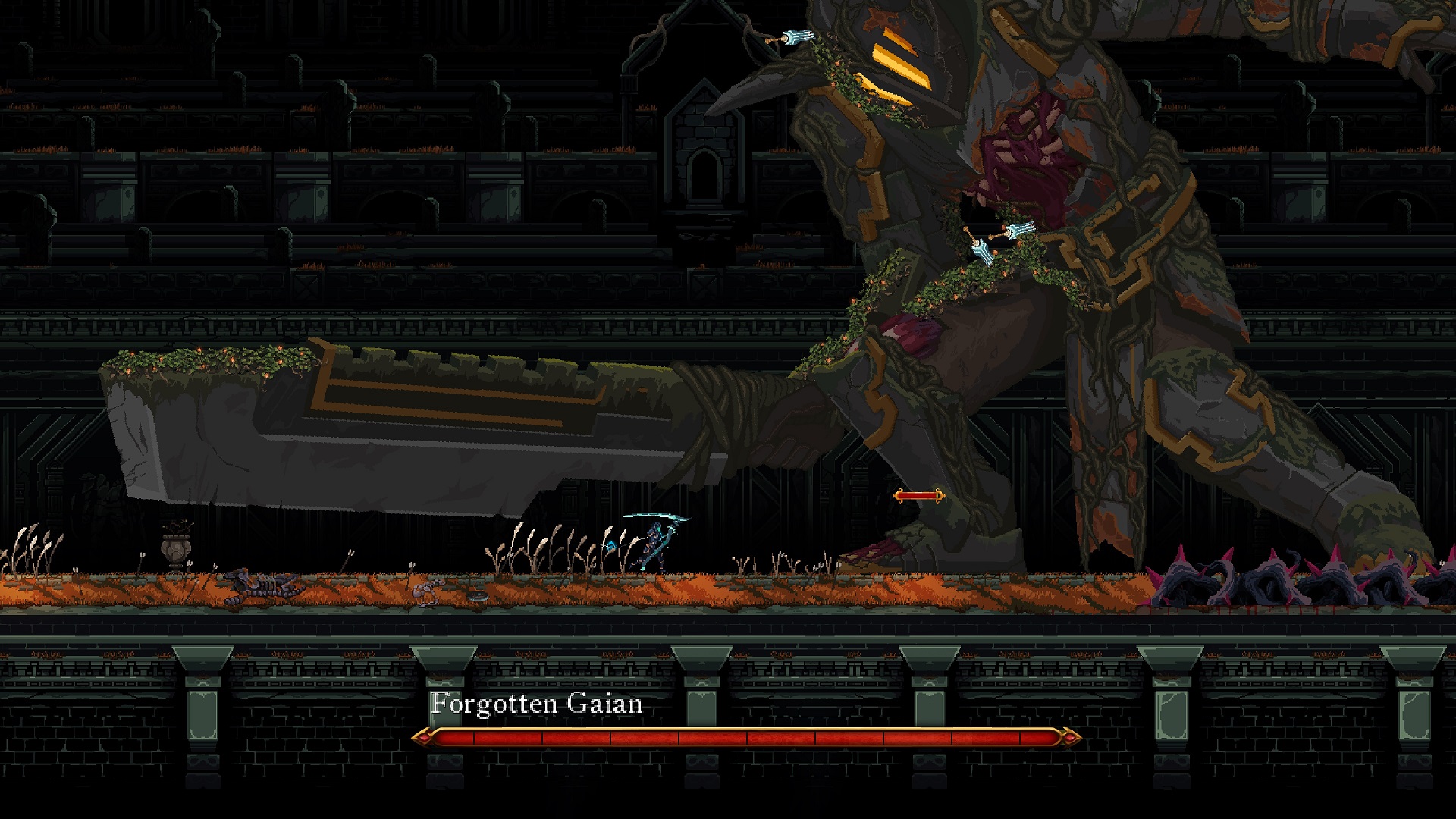
Sumire Review
Sumire is a short narrative adventure with all the good feels but also depicts the darkness inside the human heart cleverly and artistically. A storybook painted with a pastel palette, its beautiful artwork lends a hand in telling a simple story of making today the most wonderful day (or not). It is heartwarming when it needs to be and frightening when we face her demons. Incredibly well-done with excellent character development in such a short period of time, Sumire is a game that teaches us the important lesson of how to seize the day.
One Day, One Life
Set in a small Japanese town, the story focuses on our young character Sumire and her coping with the loss of her grandmother, her father’s departure, and the loneliness of her mother. Cooped up inside her house all day, Sumire wakes up from a dream about her grandmother and realizes she doesn’t remember her last words. That night, she finds a mysterious seed on the floor and decides to plant it, giving birth to an energetic flower that only has one day to live. The flower convinces Sumire to show it a wonderful day, prompting her to write a to-do list and bring her outside to face her fears and create fun memories.

The game introduces its characters effectively in a short amount of time without compromising on Sumire’s own character development quality. Each person we meet has a role in making Sumire’s day the way she needs it to be – she encounters an old friend whom she had a falling-out with, she plays games with someone she hasn’t hung out with before, she gets teased by the mean girls at school, and she meets up with her crush and wants to feel loved. All of this, combined with conversations with her mother and uneasy phone calls with her father, give us a glimpse into the life of Sumire, allowing us to see who she is through the way she interacts with everyone else.
We can often experience the darkness inside Sumire’s heart, and this is when the game becomes terrifying. Triggered by certain actions from the mean girls and her old friend, Sumire’s flower awakens and traps the girls, making Sumire decide if she wants to save them or poison them. It was a little unexpected, going from a light and airy atmosphere to being locked in a murder house surrounded by darkness and scary figures flashing on the TV. The contrasting artwork between having a great day and facing your demons was a beautiful representation of how someone could feel things go right and when things go wrong.

As a narrative adventure, Sumire is always conversing with her magical flower as they decide on what to do next. Players have the opportunity to make choices for Sumire, and depending on your decision, you could either increase or decrease your karma. With multiple side quests along the way, we can choose to stop and help those who need assistance, or we can ignore them as there’s only a limited amount of time in one day. Some of the actions you decide to do or not do will unlock certain achievements, giving the player reason to come back a second time.
A Short and Sweet Adventure
Besides helping humans and animals with heartwarming side quests, there are also mini-games where Sumire plays cards with her new friend and board games with her crush. Surprisingly these mini-games were really easy to understand and pretty fun, and the random bits of conversations between Sumire and the boys, while they played, were a sweet touch. If you end up beating the two boys at their own game, you can also unlock an achievement, so even if you’re not interested in the dialogue between young, innocent children, that’s motivation enough to try your best.

The replayability of Sumire is excellent, seeing that there are so many challenges to try and beat. This includes completing your day with the highest karma or even completing your day with the lowest karma. The game autosaves, and there is only one save file, which means you will need to replay the game from the beginning if you want to keep unlocking achievements. In a way, it makes sense for the story, showing that you have to live with the consequences of your choices. The other downside is there is no fast-forward button to get to the point where Sumire needs to make a choice, so completionists will have to sit through the entire story again. Luckily the game is short, so there isn’t too much waiting around.
Sumire may be a short game, but the character interactions, side quests, and challenges make each playthrough unique. Despite having experienced loss, the game shows us that Sumire could make her day better, one step at a time – that is, if you chose to give her a good day. Even though some parts may be arguably scary for children, important lessons are to be learned and beautiful artwork to be appreciated. With good replayability but no fast-forwarding enabled, you may not immediately feel the urge to start a new game. Still, someday if you feel like picking up a heartwarming tale and giving Sumire the worst day of her life, the game will be there, ready for your poor choices.
***A Nintendo Switch code was provided by the publisher***
The post Sumire Review – And Now I Just Sit in Silence appeared first on COGconnected.



